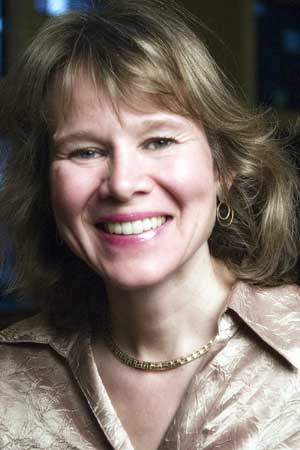
Powerful work done justice
Benjamin Britten’s War Requiem, one of the pinnacles of the choral world, is rarely heard due to the huge cast and attendant costs. The Bay Area has been fortunate to have it produced twice recently. Last summer Robert Geary and the San Francisco Choral Society mounted it at Davies Symphony Hall in San Francisco, following a call for singers that wended through message boards and choral e-mail lists.
And Wednesday, April 22, UC Berkeley’s Music Department gathered the troops for a single performance at Zellerbach Auditorium.
Britten was approached by the city of Coventry, which wished to commemorate the rebuilding of its church after it was targeted and bombed into rubble by Nazi Germany.
Not known for half measures, the composer combined librettos based on Latin liturgy and the powerful anti-war poetry of Wilfred Owen, who died of chlorine gas in the trenches of World War I. Britten’s score calls for over 200 singers, 80 instrumentalists and three soloists, originally an English tenor, German baritone and Russian soprano, so that those three nationalities would bear witness to their history.
Tenor Brian Staufenbiel sang Owen’s poetry with a light purity that evoked the youth of those who perished in the “Great War,” differing from the denser notes of Britten’s partner, Peter Pears, who originally sang the role. Christòpheran Nomura added heft to the baritone part, originally sung by German superstar Dietrich Fischer-Dieskau, with whom Nomura once studied. And the third soloist, soprano Janice Chandler-Eteme, brought great warmth as she led the chorus in the Latin text.
Marika Kuzma, having recently returned to UC Berkeley from a year in Montreal, conducted the 90-minute work without a break and with a taut energy that held us mesmerized. Her 112-strong University Chorus and Chamber Chorus were augmented by 87 members of the sterling UC Alumni Chorus; and 42 young singers from the Piedmont Children’s Choir sang in the balcony, treble Latin chants winging over the rumble of adult voices. The musicians were the cream of the Bay Area, and I recognized many of them as principals of our symphonies or from prominent ensembles.
Britten’s Requiem is meant to disturb on several levels. When the chorus opens with “requiem aeturnum” (eternal rest), their voices are on C and F-sharp, a disturbing tritone apart. This is an interval whose overtones never match to shape harmony, and it recurs throughout the work. According to a pre-concert talk by William Quillen, Britten used the tritone as a central linking interval, and “it saturates the work, creates a feeling of the unresolved. For, as Owen wrote, ‘All a poet can do today is warn.’ ”
Chimes followed the chorus, a slow tolling that blurred the air with dissonance. Staufenbiel began Owen’s dirge:
“What passing bells for these who die as cattle?”
It is a slap in the face for those who find refuge in ritual or doctrine. Britten does not allow us to distance ourselves from the text as he juxtaposes the Dies Irae (Day of Judgment) with Owen’s meditations on death.
Nomura supported with a wide stance, and his voice easily filled Zellerbach, but he modulated down for a buttery duet with the lighter tenor. When they meet as former adversaries in Death’s realm, they recognize and comfort one another in the moving final poem:
I am the enemy you killed, my friend.
I knew you in this dark; for so you frowned
Yesterday through me as you jabbed and killed.
I parried; but my hands were loath and cold.
Let us sleep now…
The children’s chorus prayed over them, and it ended as it began, “Requiem aeternam dona eis, Domine” (Lord, grant them eternal rest). The combined choruses gave their final orisons and benisons, gently agitating the air with the soft murmuring of hundreds of voices. The difficult harmonies were seamless, showing the chorus’ careful preparations.
While the Requiem is uneven, it is so ambitious musically and thematically that our present generation owes it a debt. And the near-capacity crowd, particularly for mid-week, found it still relevant as, yet again, we stand in pointless war.
Then Abram bound the youth with belts and straps,
And builded parapets and trenches there,
And stretched forth the knife to slay his son.
When lo! an angel called him out of heav’n,
Saying, Lay not thy hand upon the lad…
But the old man would not so, but slew his son,
—and half the seed of Europe, one by one.
—Wilfred Owen, 1893-1918
—Adam Broner
A version of this article originally appeared in the Piedmont Post
